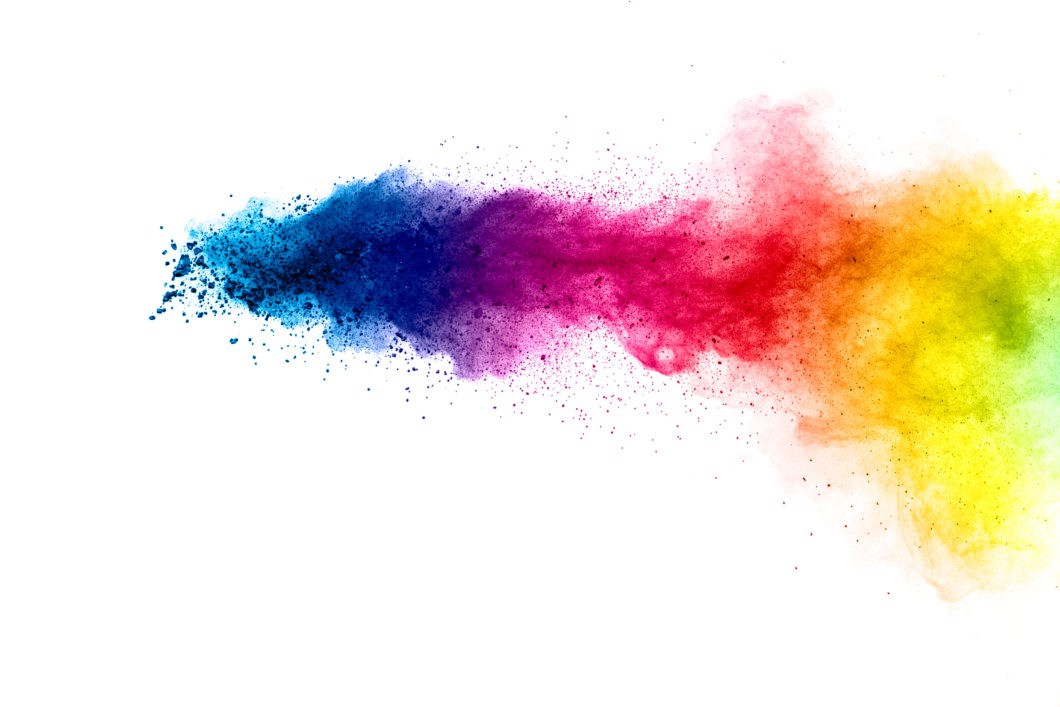Colours are everywhere!
But colour isn’t just something we see; it’s something we feel.
Different colours represent different things in lots of different cultures.
Take the colour green, for example. It can represent nature, aliens,
Islam, environmentalism, eternal life, money and cannabis. And that’s
just green.
So it’s unsurprising that in many languages there are lots of idioms associated with colours.
Here are some of the most common ones in English.
1) Tell someone something until you’re blue in the face
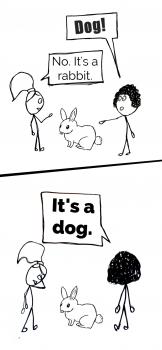
What does it mean?
Having to tell someone something again and again and again, but without getting your message across.
Examples, please!
There are some people out there who just
don’t listen. You can tell them something a hundred times, but they
still don’t listen. I once had a friend who would constantly call me
Julian. I repeatedly reminded him that my name wasn’t Julian. But he
kept calling me Julian. I realised that I could tell him my name was
Gabriel until I was blue in the face, but it wouldn’t make any difference. So when I was hanging out with Tom, I became Julian. I quite liked it after a while.
2) Caught red-handed
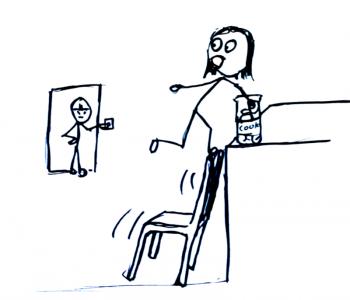
What does it mean?
It means “caught doing something you shouldn’t be doing … while you’re doing it.”
Examples, please!
Have you ever had anything stolen from
you? Like a phone? You get this really nasty feeling afterwards. You
start trying to imagine the person who stole it and all the things you’d
like to do to them. Then you start fantasising about catching the
person doing it. You want to catch them with their hands on your phone –
in your bag. You want to catch them red-handed. But then what? Watch them run away?
3) Out of the blue
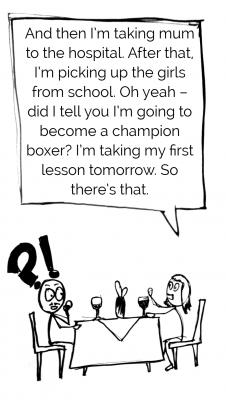
What does it mean?
Completely unexpectedly.
Examples, please!
We often get news that’s completely out of the blue. Or sometimes it’s people contacting us completely out of the blue.
Let’s say you were at a conference last year. You met lots and lots of
people (it was a big conference) and exchanged contact details with most
of them, including one guy with the spiky hair and the weird eye. Then,
almost a year later, one of the people you met at the conference
suddenly sends you an email asking you if you’d like to meet up for
coffee. That’s right – it’s the spiky-haired weird eye guy. But why? Why
is he contacting you now? Surprising, right? Well of course you’re
surprised! He sent you this invitation completely out of the blue.
4) Grey area
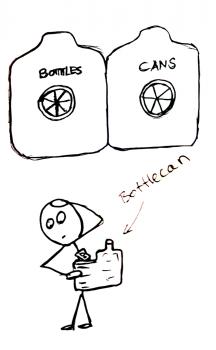
What does it mean?
A situation that isn’t clearly defined.
Examples, please!
We often use this phrase when we want to
talk about rules, laws or policies. In 1991, there was a ridiculous
tribunal (corporate court case) about cakes and biscuits. This story
involves Jaffa Cakes, a sort of cake/biscuit thing. In the UK, these
delicious and unhealthy things were categorised as biscuits, which meant
that the company who made them had to pay extra tax. The company was
not happy and took the case to a tribunal, where they claimed that Jaffa
Cakes were, in fact, cakes, not biscuits. In order to prove this — and
I’m not kidding here — they brought a giant Jaffa Cake into the
courtroom. “See?” they said. “Cake!” Amazingly, they won the case. So
now Jaffa Cakes are officially cakes and a giant corporation makes even
more money. So a happy ending! Obviously, this ridiculous situation
could only happen because the definition of what a cake is (and what a
biscuit is) is a bit of a grey area.
5) White lie
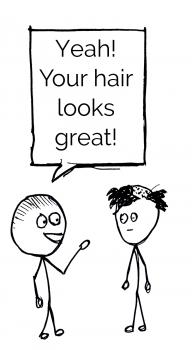
What does it mean?
A small, harmless lie.
Examples, please!
We usually tell white lies so we don’t
hurt someone’s feelings. And we do it all the time! Have you ever told
someone you like their new shirt, even though you thought that the shirt
would, in fact, be much more attractive covered in ketchup – or fire?
Or have you ever been walking in the street when someone you think
you’ve never seen before in your life stops you, says your name and asks
you how you’re doing? When you look confused at him, he says, “You
remember me, right?” What do you normally say in this situation? Be
honest! Like most of us, I’m guessing you say, “Yeah! Of course I
remember you!” A white lie.
6) Golden opportunity

What does it mean?
A rare chance to do something that will lead to success.
Examples, please!
Imagine you’ve fulfilled your dream to
quit your job, move to Hollywood and start writing comedy film scripts.
That is your dream, right? Anyway, you’ve written a great script for a
film about bears taking over south-west Minsk – but in a funny way. It’s
called The Bear Truth. You’ve been in Hollywood for three
months, trying to sell the film to producers, but you can’t even get a
meeting with anyone important. You’re sitting in a restaurant, feeling
demotivated, when suddenly you look up, and you see Eddie Murphy at the
next table. He’s right there and eating by himself. He’s also looking
bored. So what do you do? Do you just ignore him and respect his
privacy? Or do you take this golden opportunity and tell him about your
script? The choice is yours!
7) Red tape
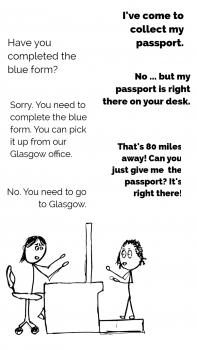
What does it mean?
This phrase means bureaucracy — too much bureaucracy.
Examples, please!
You’re familiar with the frustrating
experience of trying to get something simple done in a government
office, right? It’s never simple. This is when, as a writer, I decide
that Asterix can explain the frustration of dealing with red tape better
than I could.
8) Blue-collar worker / White-collar worker
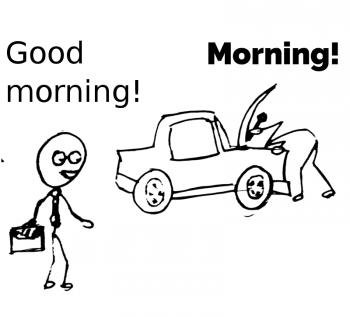
What does it mean?
There are two phrases here.
A blue-collar worker is someone who has a job that requires a lot of physical work.
A white-collar worker is basically someone who works in an office.
Examples, please!
So why “blue” and “white”? This is
probably because of the clothes these kinds of workers wear. If you
think of someone who works in a garage, for example, what do you
imagine? I’m guessing you might be thinking of someone wearing a blue
boiler suit – you know.
One of these:

And people who work in an office? Well, I
guess that depends on whether they’re male or female. Most men who work
in an office usually have to wear suits, which means shirts, which are
usually white. Some women also wear white shirts. Makes sense, right?
OK. So there we are – eight colour idioms. Now go out into the world and use them!
Gabriel Clark, LOS Consultant & Clark and Miller Co-founder
